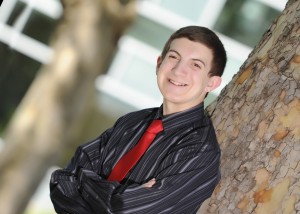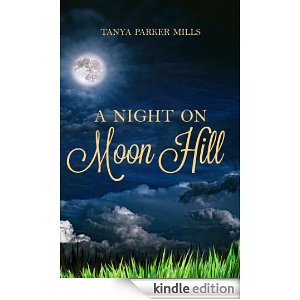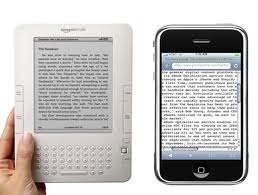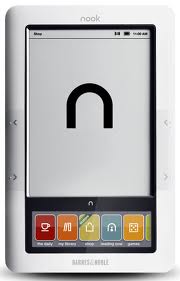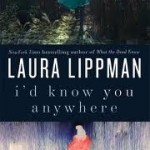I’m kicking off my weekly “Wednesday Writer” series by interviewing not a published author, but a writer (perhaps) in embryo–my eighteen-year-old son.
Given that he was the inspiration behind A NIGHT ON MOON HILL, this won’t be like all my other author interviews (though I will ask him about his own writing at the end). Instead, I thought it would be interesting to get his take on the story he inspired. You see, he was about the age of Eric, the ten-year-old boy in my novel, when I had my first ideas for this tale. At the time, we were finally getting a handle on his Asperger’s in terms of helping him make friends at school. This interview was also my first opportunity to see what he thought about me being a writer.
Me: Do you remember how old you were when you first became aware that I was writing on a regular basis? And what did you think of that?
Jason: I’m sorry to say that I don’t exactly remember how old I was when I first became aware that you were writing on a regular basis. I do, however, vaguely remember you being on the computer all the time back in Riverside. (We used to live in Southern California.) But I think I truly became aware when we moved to Richland and you actually let us know that you were writing a novel. As for what I thought, I think I was like, “That sounds pretty cool. Maybe she got inspired by J. K. Rowling.”
(Not really. Don’t misunderstand. I love the Harry Potter series, but Barbara Kingsolver is more my style.)
Me: What was your first reaction when you learned I was writing a novel in which there would be a young boy with Asperger’s? Did it make you nervous at all? If so, why? If not, why not?
Jason: To tell the truth, I was excited that you were writing a novel based on me. I thought it was only natural for you to write about that particular subject matter since you’ve done so much research on Asperger’s. The more I thought about it, I realized that it would be really important for you to write A NIGHT ON MOON HILL because it explains many things about AS, and I think tons of mothers with children who have AS will learn a lot from it. So, to answer your question, no, I wasn’t nervous in the least. (In fact, I was rather flattered!)
Me: I offered to let you read the finished manuscript more than once but you always refused. Why did you want to wait for the actual physical copy of the book to arrive before reading it? What made you give in and read the Kindle version?
Jason: I guess I wanted to wait for a physical book because I’m a freak like that. I just think it’s so much more satisfying to actually open a book, turn the pages, and be transported to another world. When you’re reading from an electronic device, I think it’s a little less satisfying because you can’t turn any pages, you don’t physically open anything, etc.
As for the second question, after Dad read it and practically raved about it, I thought to myself, “Well, if Dad really liked it, maybe I should just read it on Mom’s Kindle.” And boy, am I glad I did; otherwise, I wouldn’t have noticed that little mistake in Chapter 18. In fact, I’m surprised Dad didn’t catch it! (A mistake, by the way, which the publisher has thankfully rectified . . . so, unless you read a very early Kindle version, you will never see it!)
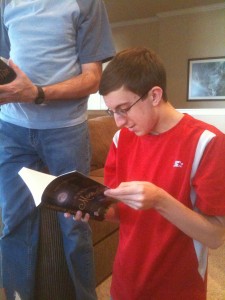 Jason finally getting his hands on a physical copy of the book
Jason finally getting his hands on a physical copy of the book
Me: What did you think of Daphne, the main character, at first?
Jason: I definitely noticed some similarities between me and her (e.g., love of swimming, neat freak, slight outdoors hater, etc.), and I also loved how brave she could become if someone she cared about was in danger. She’s practically the textbook definition of an “unlikely heroine.”
Me: What was it like to read about Eric and the way he interacted with Daphne and others? Did it feel at all familiar or were there enough differences to set him apart from you?
Jason: I fell in love with Eric the instant he was introduced. The conversations between him and Daphne were brilliant, and I could tell she was impressed with this boy who knew so much about angels and other things. I think there are some differences between us, like how he loves being outside while I don’t like being outside for too long. Some of his quirks felt very familiar (like how he prefers his food done “the right way” and his high soprano voice), and I thought you did a great job on his character. (Aw, thanks. Jason, by the way, had a lovely high soprano voice when he was Eric’s age…now he sings bass beautifully but has a wide range.)
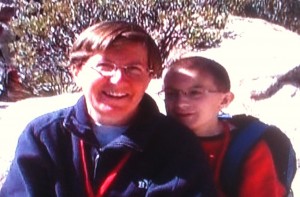 Jason and I when he was about ten or eleven
Jason and I when he was about ten or eleven
Me: Without giving anything away, what did you think of the book? What did you like most and what did you like least?
Jason: I thought A NIGHT ON MOON HILL was very well-written and the characters were enjoyable, particularly Daphne’s agent, Judy (I thought she was the most hilarious character in the novel). I liked the whole conflict with Morgan and you did a really good job making him . . . (Okay, I don’t think I should include the rest of that sentence . . . spoiler.) I, of course, loved the relationship between Eric and Daphne, but I wish there were more descriptions of Eric’s activities with . . . (Sorry. I can’t print the rest of that sentence either. If you read the book, you’ll probably be able to guess what Jason was about to say.) But, on the whole, A NIGHT ON MOON HILL is, in my very honest opinion, your best novel yet.
(Now that I can print!)
Me: Finally, I’m aware you’ve written a story or two . . . mainly of the fan fiction variety. Did reading my novel increase your desire to write fiction? If so, what would you like to write a story about next?
Jason: It’s true I’ve written stories–a Lion King/Alice in Wonderland crossover fanfic, 2 “Gargoyles” fanfics, and a Wile E. Coyote fanfic–but writing an entirely original novel is pretty daunting. I don’t know that I ever could because all the good ideas seem to be taken. I am tempted to take one of my Language Arts assignments back in my freshman year in high school (about “Wicked”) and expand it. So if I do any writing in the near future, that’s probably what I’d focus on.
I’ll be certain to let you know if Jason follows through on that. In the meantime, if you’re interested, beginning next week I’m posting every other Friday about my son’s progress post-high school as he journeys toward independence.
And next week I’ll be featuring an interview with author GG Vandagriff with many of the usual and some not so usual questions.
Originally posted 2012-09-26 22:12:53.

